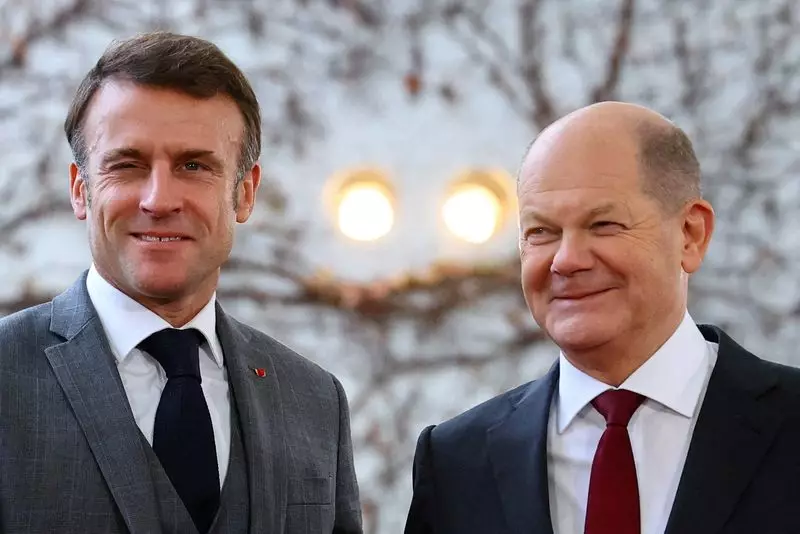French President Emmanuel Macron’s upcoming visit to Germany for a three-day state visit followed by a bilateral cabinet meeting underscores the importance of unity between the European Union’s two biggest powers ahead of the EU parliamentary elections next month. This visit, which includes stops in Berlin, Dresden, and Muenster, marks the first French presidential state visit to Germany in 24 years and comes at a critical juncture for Europe, with challenges ranging from the Ukraine war to the potential election of Donald Trump as U.S. president.
Despite having different leadership styles, Macron and German Chancellor Olaf Scholz have managed to navigate their differences and find compromises on various issues, from fiscal reform to changes in power market subsidies. These compromises have allowed the EU to present a more united front, even though tensions still exist in the German-French relationship. The two countries have also found common ground on expanding the EU eastwards, highlighting the complexities of their partnership.
One of the fundamental gaps between France and Germany lies in the realm of European defence, especially in light of the upcoming U.S. presidential election. While France advocates for a more self-reliant Europe on defence matters, Germany remains reliant on the U.S. military umbrella for security. The differing views on defence procurement and strategy exemplify the ongoing challenges faced by the Franco-German relationship and its implications for EU stability.
During his visit, Macron will engage in a series of diplomatic activities, including meetings with German President Frank-Walter Steinmeier and other key officials. The visit’s symbolic significance, such as walking through the Brandenburg Gate in Berlin and delivering a speech in Dresden, underscores the historical context of Franco-German relations. However, the most critical aspect of the visit will be the bilateral cabinet meeting in Meseberg, where Macron and German officials will address lingering issues related to defence and competitiveness.
In light of the expected strong showing for far-right parties in the upcoming EU parliamentary elections, Macron and Scholz will also discuss the EU agenda for the next five years. The rise of populist movements across Europe poses a challenge to EU decision-making, requiring France and Germany to find common ground on key issues. Moreover, the window of opportunity for pushing forward ambitious EU plans between the parliamentary elections and the establishment of new leadership will be crucial in navigating the uncertainties of the political landscape, particularly in the face of a potential Trump victory in the U.S. election.
The Franco-German relationship, as exemplified by Macron’s visit to Germany, remains a cornerstone of EU policymaking and integration. Despite the challenges and tensions that persist between the two countries, the commitment to finding common ground on critical issues such as defence and competitiveness reflects the importance of unity in shaping the future of Europe. As Macron and Scholz engage in discussions and negotiations during the state visit, the outcomes will not only impact bilateral relations but also have broader implications for the EU’s ability to navigate geopolitical shifts and internal challenges.

